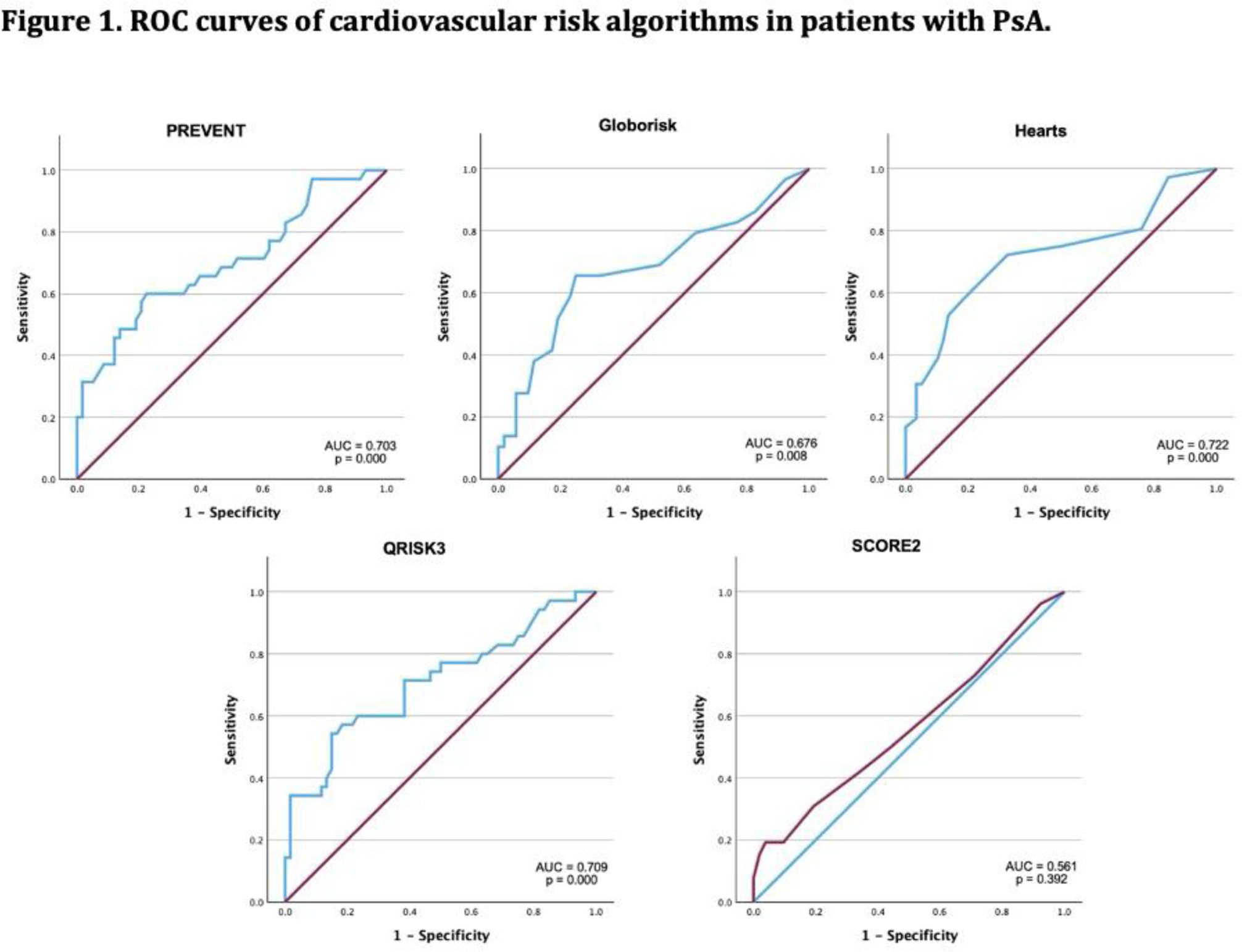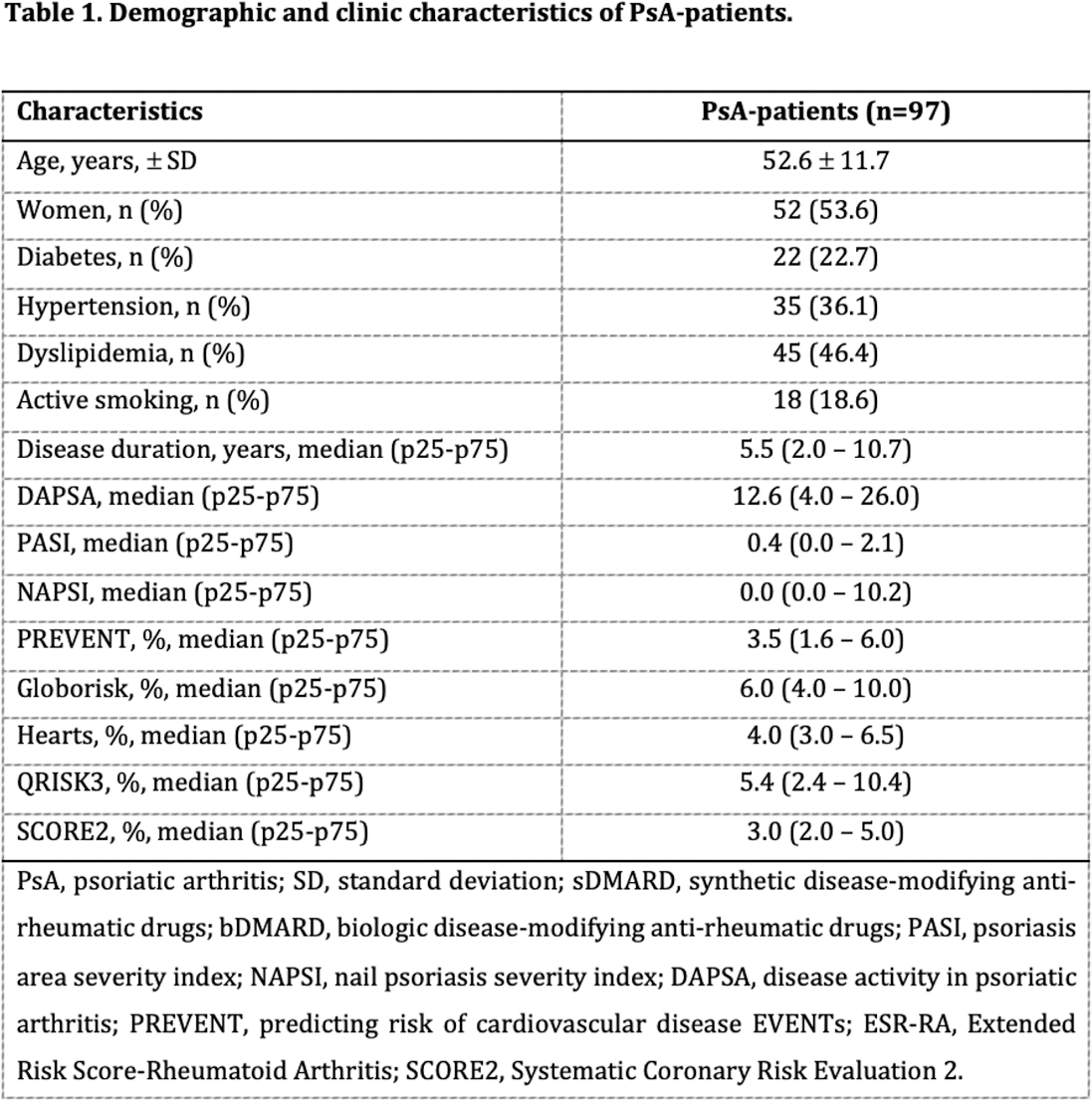

Background: Patients with psoriatic arthritis (PsA) experience a higher risk of cardiovascular disease (CVD), leading to increased morbidity and mortality. Assessment with cardiovascular risk (CVR) algorithms are useful and economical tools for early detection of atherosclerotic cardiovascular disease (ASCVD). The new algorithm developed by the American College of Cardiology (ACC) and the American Heart Association (AHA) called, Predicting Risk of Cardiovascular Disease EVENTs (PREVENT), estimates heart failure and atherosclerotic cardiovascular disease. Its efficacy in PsA has not been evaluated.
Objectives: To compare CVR algorithms with carotid plaque (CP) in PsA patients without clinical ASCVD and identify which algorithm is the best predictor that correlates with CP.
Methods: A cross-sectional and descriptive study that included PsA-patients aged 30 to 79 who fulfilled the 2006 Classification Criteria for PsA. Patients with previous CVD (myocardial infarction, stroke, or peripheral artery disease) were excluded. CVR was calculated using five algorithms: Globorisk, 2019 Hearts (WHO), QRISK3, SCORE2, and PREVENT. A carotid ultrasound was performed on all study participants, and the presence of CP defined as a diffuse carotid intima-media thickness (cIMT) ≥1.2 mm or a focal thickness ≥0.5 mm, was assessed. ROC curve analysis was performed to evaluate the different CVR algorithms’ performance and the presence of CP. The Youden index was calculated to select the optimum sensitivity, specificity, and negative and positive predictive values. A value of p ≤0.05 was considered statistically significant.
Results: A total of 97 patients with PsA diagnosis were included. The prevalence of CP was 38.0%. Demographic characteristics and results are shown in Table 1 and Figure 1.
Conclusion: In our study, all algorithms had significant discrimination for the presence of PC, except for the SCORE2 algorithm, which does not appear to work in our population. However, the CVR algorithms such as Globorisk, Hearts, and QRISK3 presented the best diagnostic accuracy with the greatest sensitivity and specificity to detect CP in PsA-patients. The novel algorithm, PREVENT, was shown to be less able to detect CP in our population.
REFERENCES: [1] Galarza-Delgado DA, Azpiri-Lopez JR, Colunga-Pedraza IJ, et al. cardiovascular risk reclassification according to six cardiovascular risk algorithms and carotid ultrasound in psoriatic arthritis patients. Clin Rheumatol 2022;41(5):1413-20.


Acknowledgements: NIL.
Disclosure of Interests: None declared.